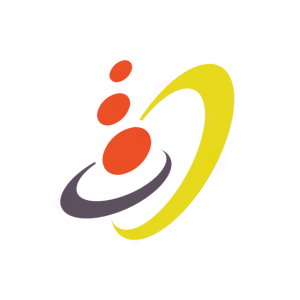Karyopharm Announces Completion of Enrollment in the Phase 3 SENTRY Trial in Myelofibrosis
Rhea-AI Summary
Karyopharm Therapeutics (Nasdaq: KPTI) has completed enrollment in its Phase 3 SENTRY trial, evaluating selinexor in combination with ruxolitinib for JAKi-naïve myelofibrosis patients. The trial enrolled 353 patients with top-line results expected in March 2026.
The study aims to assess if selinexor plus ruxolitinib could become the first approved combination therapy for myelofibrosis. The trial's co-primary endpoints include spleen volume response rate ≥35% at week 24 and the average change in absolute total symptom score over 24 weeks versus baseline. Patients were randomized 2-to-1 to receive either 60mg weekly selinexor with ruxolitinib or placebo with ruxolitinib.
Positive
- Potential to be the first combination therapy approved for myelofibrosis treatment
- Large-scale Phase 3 trial with 353 patients enrolled
- Clear timeline for top-line data release in March 2026
Negative
- Results not expected until March 2026, indicating a significant waiting period
- Success of the combination therapy remains uncertain pending trial results
News Market Reaction
On the day this news was published, KPTI declined 1.90%, reflecting a mild negative market reaction. Argus tracked a peak move of +3.5% during that session. Argus tracked a trough of -13.5% from its starting point during tracking. Our momentum scanner triggered 4 alerts that day, indicating moderate trading interest and price volatility. This price movement removed approximately $1M from the company's valuation, bringing the market cap to $58M at that time.
Data tracked by StockTitan Argus on the day of publication.
– Top-Line Results Anticipated in March 2026 –
"We are excited to announce that we have completed enrollment of our Phase 3 SENTRY trial and look forward to sharing top-line data from this pivotal trial in March 2026," said Richard Paulson, President and Chief Executive Officer of Karyopharm. "Selinexor plus ruxolitinib has the potential to be the first combination therapy approved for the treatment of myelofibrosis, depending on the outcome of the data. By combining selinexor with the current standard of care, we believe we have the potential to redefine the way people living with myelofibrosis are treated."
"I am grateful for the patients, their families and caregivers, the investigators and their clinical trial staff, as well as the extraordinary efforts of the Karyopharm team and our external partners for their help in successfully achieving this important milestone," said Reshma Rangwala, MD, PhD, Chief Medical Officer and Head of Research of Karyopharm. "This trial is advancing our understanding of the treatment of myelofibrosis and the potential role that XPO1 inhibition may play in this disease. People living with myelofibrosis deserve new treatment options and everyone involved in SENTRY is making an important contribution towards our common goal of providing additional options to patients with this disease."
"We are encouraged by the work that Karyopharm is doing in myelofibrosis and eagerly await data from the Phase 3 SENTRY trial," said Kapila Viges, Chief Executive Officer of MPN Research Foundation. "The myelofibrosis community is in need of new, more effective therapies that can help a greater number of patients beyond what is available with currently approved options. Efforts to develop new therapies bring hope to the myelofibrosis community and open the potential for patients to have more treatment options. For patients, options matter."
SENTRY (XPORT-MF-034; NCT04562389) is a Phase 3 clinical trial evaluating a once-weekly dose of 60 mg of selinexor in combination with ruxolitinib compared to placebo plus ruxolitinib in JAKi-naïve myelofibrosis patients with platelet counts >100 x 109/L. Patients are randomized 2-to-1 to the selinexor arm. The co-primary endpoints for this trial are spleen volume response rate ≥
About Myelofibrosis
Myelofibrosis is a rare blood cancer that affects approximately 20,000 patients in
1. Clarivate/DRG (2023)
2. Palandri, F., Palumbo, G.A., Elli, E.M. et al. Ruxolitinib discontinuation syndrome: incidence, risk factors, and management in 251 patients with myelofibrosis. Blood Cancer J. 11, 4 (2021).
3. Pardanani, A., & Tefferi, A. (2011). Prognostic relevance of anemia and transfusion dependency in myelodysplastic syndromes and primary myelofibrosis. Haematologica, 96(1), 8–10.
About XPOVIO® (selinexor)
XPOVIO is a first-in-class, oral exportin 1 (XPO1) inhibitor and the first of Karyopharm's Selective Inhibitor of Nuclear Export (SINE) compounds for the treatment of cancer. XPOVIO functions by selectively binding to and inhibiting the nuclear export protein XPO1. XPOVIO is approved in the
For more information about Karyopharm's products or clinical trials, please contact the Medical Information department at: Tel: +1 (888) 209-9326; Email: medicalinformation@karyopharm.com
XPOVIO® (selinexor) is a prescription medicine approved:
- In combination with bortezomib and dexamethasone for the treatment of adult patients with multiple myeloma who have received at least one prior therapy (XVd).
- In combination with dexamethasone for the treatment of adult patients with relapsed or refractory multiple myeloma who have received at least four prior therapies and whose disease is refractory to at least two proteasome inhibitors, at least two immunomodulatory agents, and an anti‐CD38 monoclonal antibody (Xd).
- For the treatment of adult patients with relapsed or refractory diffuse large B‐cell lymphoma (DLBCL), not otherwise specified, including DLBCL arising from follicular lymphoma, after at least two lines of systemic therapy. This indication is approved under accelerated approval based on response rate. Continued approval for this indication may be contingent upon verification and description of clinical benefit in confirmatory trial(s).
SELECT IMPORTANT SAFETY INFORMATION
Warnings and Precautions
- Thrombocytopenia: Monitor platelet counts throughout treatment. Manage with dose interruption and/or reduction and supportive care.
- Neutropenia: Monitor neutrophil counts throughout treatment. Manage with dose interruption and/or reduction and granulocyte colony‐stimulating factors.
- Gastrointestinal Toxicity: Nausea, vomiting, diarrhea, anorexia, and weight loss may occur. Provide antiemetic prophylaxis. Manage with dose interruption and/or reduction, antiemetics, and supportive care.
- Hyponatremia: Monitor serum sodium levels throughout treatment. Correct for concurrent hyperglycemia and high serum paraprotein levels. Manage with dose interruption, reduction, or discontinuation, and supportive care.
- Serious Infection: Monitor for infection and treat promptly.
- Neurological Toxicity: Advise patients to refrain from driving and engaging in hazardous occupations or activities until neurological toxicity resolves. Optimize hydration status and concomitant medications to avoid dizziness or mental status changes.
- Embryo‐Fetal Toxicity: Can cause fetal harm. Advise females of reproductive potential and males with a female partner of reproductive potential, of the potential risk to a fetus and use of effective contraception.
- Cataract: Cataracts may develop or progress. Treatment of cataracts usually requires surgical removal of the cataract.
Adverse Reactions
- The most common adverse reactions (≥
20% ) in patients with multiple myeloma who receive XVd are fatigue, nausea, decreased appetite, diarrhea, peripheral neuropathy, upper respiratory tract infection, decreased weight, cataract and vomiting. Grade 3‐4 laboratory abnormalities (≥10% ) are thrombocytopenia, lymphopenia, hypophosphatemia, anemia, hyponatremia and neutropenia. In theBOSTON trial, fatal adverse reactions occurred in6% of patients within 30 days of last treatment. Serious adverse reactions occurred in52% of patients. Treatment discontinuation rate due to adverse reactions was19% . - The most common adverse reactions (≥
20% ) in patients with multiple myeloma who receive Xd are thrombocytopenia, fatigue, nausea, anemia, decreased appetite, decreased weight, diarrhea, vomiting, hyponatremia, neutropenia, leukopenia, constipation, dyspnea and upper respiratory tract infection. In the STORM trial, fatal adverse reactions occurred in9% of patients. Serious adverse reactions occurred in58% of patients. Treatment discontinuation rate due to adverse reactions was27% . - The most common adverse reactions (incidence ≥
20% ) in patients with DLBCL, excluding laboratory abnormalities, are fatigue, nausea, diarrhea, appetite decrease, weight decrease, constipation, vomiting, and pyrexia. Grade 3‐4 laboratory abnormalities (≥15% ) are thrombocytopenia, lymphopenia, neutropenia, anemia, and hyponatremia. In the SADAL trial, fatal adverse reactions occurred in3.7% of patients within 30 days, and5% of patients within 60 days of last treatment; the most frequent fatal adverse reactions was infection (4.5% of patients). Serious adverse reactions occurred in46% of patients; the most frequent serious adverse reaction was infection (21% of patients). Discontinuation due to adverse reactions occurred in17% of patients.
Use In Specific Populations
Lactation: Advise not to breastfeed.
For additional product information, including full prescribing information, please visit www.XPOVIO.com.
To report SUSPECTED ADVERSE REACTIONS, contact Karyopharm Therapeutics Inc. at 1‐888‐209‐9326 or FDA at 1‐800‐FDA‐1088 or www.fda.gov/medwatch.
About Karyopharm Therapeutics
Karyopharm Therapeutics Inc. (Nasdaq: KPTI) is a commercial-stage pharmaceutical company whose dedication to pioneering novel cancer therapies is fueled by a belief in the extraordinary strength and courage of patients with cancer. Since its founding, Karyopharm has been an industry leader in oral compounds that address nuclear export dysregulation, a fundamental mechanism of oncogenesis. Karyopharm's lead compound and first-in-class, oral exportin 1 (XPO1) inhibitor, XPOVIO® (selinexor), is approved in the
Forward-Looking Statements
This press release contains forward-looking statements within the meaning of The Private Securities Litigation Reform Act of 1995. Such forward-looking statements include those regarding the timing of reporting of top-line data from the SENTRY trial; the ability of selinexor to treat patients with multiple myeloma, endometrial cancer, myelofibrosis, diffuse large B-cell lymphoma and other diseases; and expectations with respect to the clinical development plans and potential regulatory submissions of selinexor. Such statements are subject to numerous important factors, risks and uncertainties, many of which are beyond Karyopharm's control, that may cause actual events or results to differ materially from Karyopharm's current expectations. For example, there can be no guarantee that Karyopharm will successfully commercialize XPOVIO or that any of Karyopharm's drug candidates, including selinexor, will successfully complete necessary clinical development phases or that development of any of Karyopharm's drug candidates will continue. Further, there can be no guarantee that any positive developments in the development or commercialization of Karyopharm's drug candidate portfolio will result in stock price appreciation. Management's expectations and, therefore, any forward-looking statements in this press release could also be affected by risks and uncertainties relating to a number of other factors, including the following: the adoption of XPOVIO in the commercial marketplace, the timing and costs involved in commercializing XPOVIO or any of Karyopharm's drug candidates that receive regulatory approval; the ability to obtain and retain regulatory approval of XPOVIO or any of Karyopharm's drug candidates that receive regulatory approval; Karyopharm's results of clinical trials and preclinical trials, including subsequent analysis of existing data and new data received from ongoing and future trials; the content and timing of decisions made by the
XPOVIO® and NEXPOVIO® are registered trademarks of Karyopharm Therapeutics Inc.
![]() View original content to download multimedia:https://www.prnewswire.com/news-releases/karyopharm-announces-completion-of-enrollment-in-the-phase-3-sentry-trial-in-myelofibrosis-302551682.html
View original content to download multimedia:https://www.prnewswire.com/news-releases/karyopharm-announces-completion-of-enrollment-in-the-phase-3-sentry-trial-in-myelofibrosis-302551682.html
SOURCE Karyopharm Therapeutics Inc.








